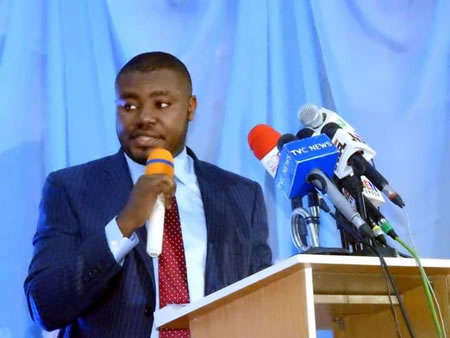Philip Agbese, a member of the House of Representatives representing Ado/Okpokwu/Ogbadibo Federal Constituency in Benue State, has responded to former Sokoto State Governor Attahiru Bafarawa’s open letter to President Bola Tinubu, offering a different perspective on the administration’s policies and reforms.
In a statement on Monday, Agbese noted that Bafarawa’s perspective on Tinubu’s administration did not take into account the broader context of ongoing reforms. He acknowledged that while criticisms are valid in a democracy, it is also important to recognize the difficult decisions being made to stabilize Nigeria’s economy and governance.
“I respect your decades of political experience and your service to Nigeria, and I acknowledge your right to express concerns about the current state of our dear country. However, as an elder statesman, your role ought to be one of guidance based on fairness and objectivity, rather than presenting a perspective that may not fully capture the complexities of the current situation,” Agbese said.
The lawmaker defended Tinubu’s handling of insecurity, stating that the challenges predated his administration and could not be solved overnight. He noted that the president had introduced key reforms in the security sector, including appointing new military and intelligence chiefs and enhancing regional collaborations.
“Insecurity that has plagued Nigeria, from terrorism in the North-East to banditry in the North-West and IPOB insurgency in the South-East, did not begin under President Tinubu. The previous administration, despite its best efforts, struggled to fully contain these threats. Many observers of Nigeria’s governance landscape acknowledge that the country faced significant challenges when President Tinubu took office,” he said.
Agbese also responded to Bafarawa’s assertion that the administration was stifling opposition, arguing that Tinubu had been inclusive in his governance approach. According to him, the president has assembled a government based on merit rather than political affiliations.
“For the record, no Nigerian democratic President in history has demonstrated as much commitment to inclusivity as President Tinubu. This is evident in his carefully assembled cabinet; a diverse representation of the country, not just in terms of geography, but in professional expertise and competence,” he said.
On economic reforms, Agbese defended the removal of fuel subsidies and the restructuring of Nigeria’s financial system, stating that previous administrations had failed to make difficult but necessary decisions. He argued that Tinubu was addressing longstanding economic challenges at great political risk.
“The removal of fuel subsidies, for instance, was not an easy decision, but it was a necessary one. The subsidy regime had become a black hole of corruption, benefiting only a few while draining national resources that could have been channeled into infrastructure, education, and healthcare,” he said.
He further responded to Bafarawa’s claim that Tinubu was working towards a one-party state, arguing that it did not align with the president’s long history in opposition politics.
“The insinuation that he is now attempting to stifle the opposition is a contradiction that does not stand to reason. Tinubu himself rose to power through opposition politics. To suggest that he would now seek to undermine the very system he helped build does not align with his political history,” Agbese said.
The lawmaker encouraged a more constructive national discourse, urging Bafarawa to contribute to national development. He maintained that while Nigeria faced serious challenges, Tinubu’s leadership was guiding the country towards recovery.






